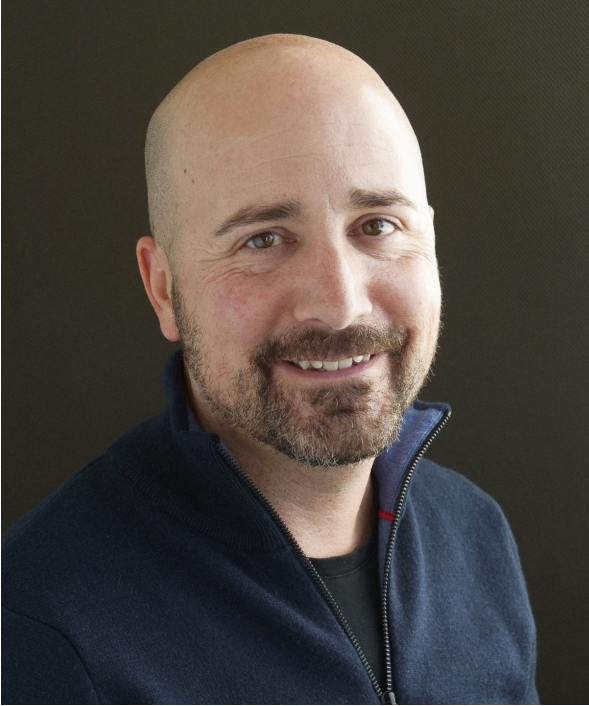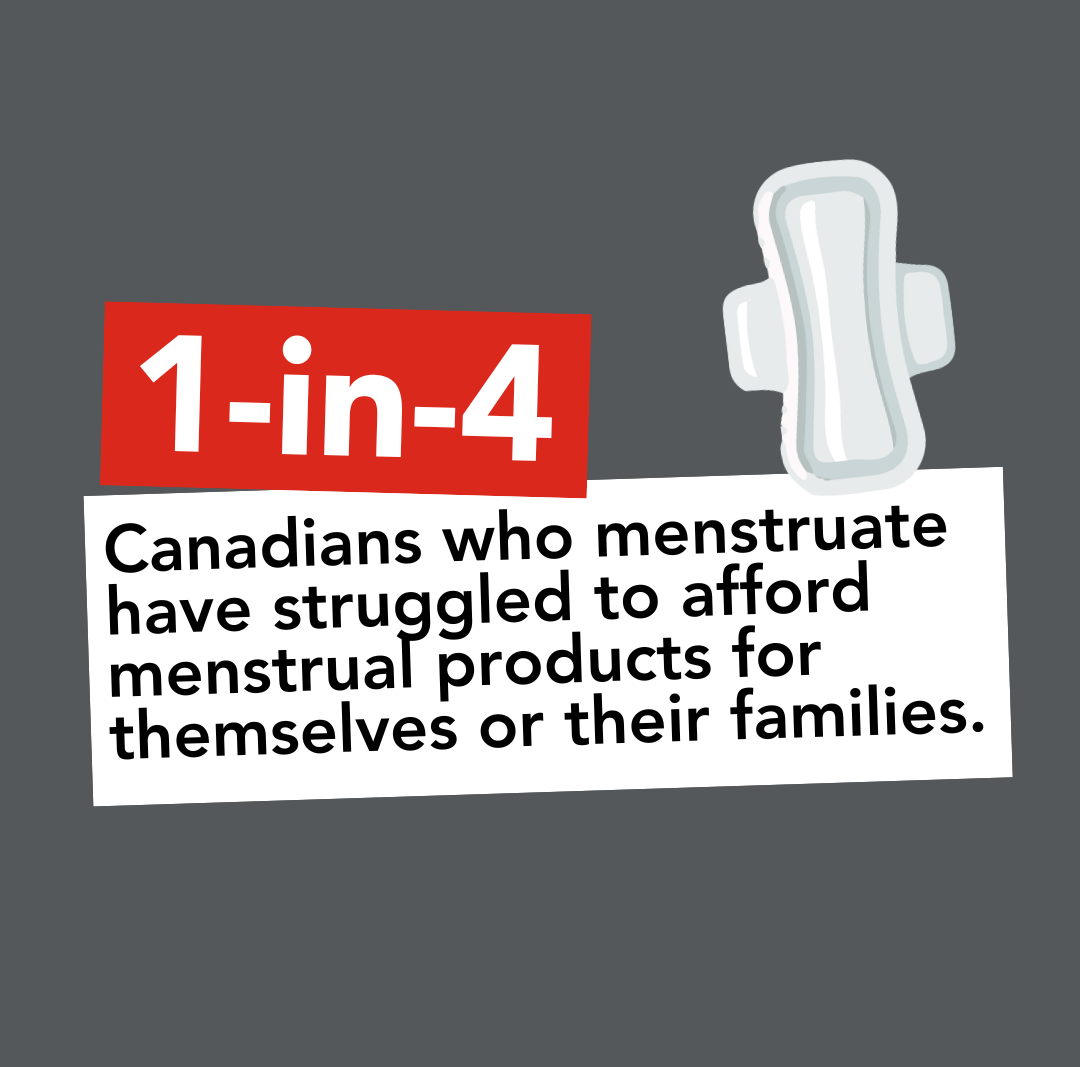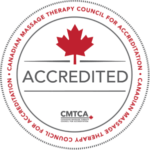This summer, the eyes of the world are on the Olympic and Paralympic Games in Paris. Like millions of others, I have been transfixed by these talented people who have trained and practiced and pushed themselves for years to reach the peak of their profession.
Seeing these elite massage therapists… Wait, who did you think I was talking about?
Behind every world-class athlete giving their all on the field, in the pool, or on the court, there’s a team of highly skilled professionals keeping them going. And for most of them, that team includes a sport massage therapist.
To get an idea of what it is these special RMTs do for the athletes under their care, and what it takes to get there, I spoke to two sport massage experts from the Vicars community. Interesting fact about the Vicars School’s faculty: Five of our current group of 15 instructors are active in sport massage!
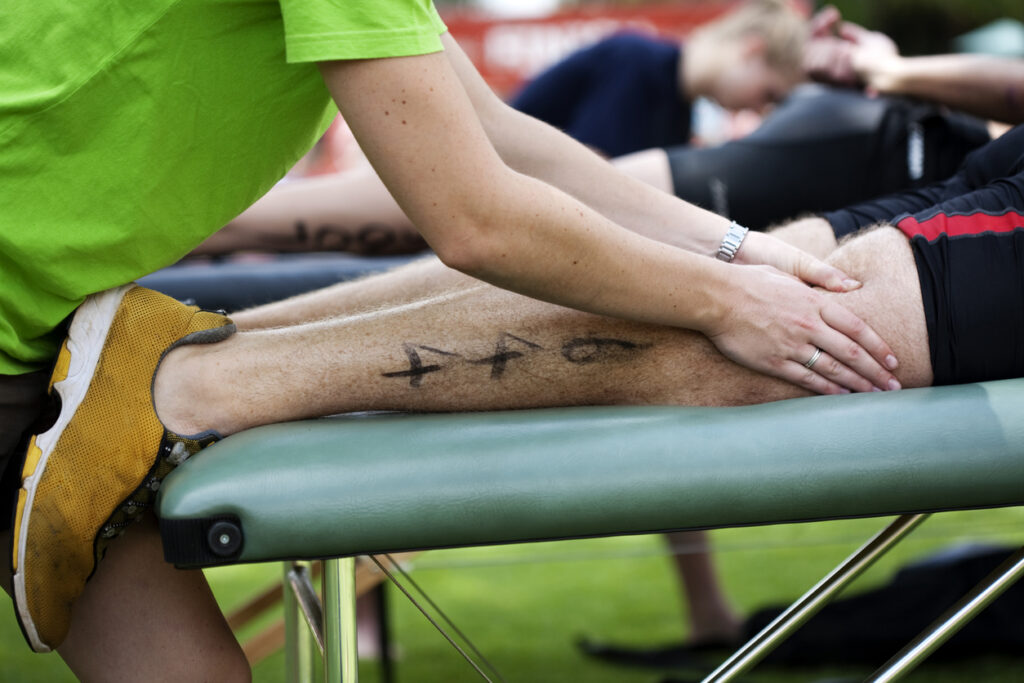
Kerri Wagensveld teaches at our Edmonton campus and is a member of the Canadian Sport Massage Therapists Association. Kerri has worked with a wide range of competitive and amateur athletes. As a long-distance trail runner herself, she has a special interest in working with runners.
Neville Wright is a Vicars graduate, performance massage therapist, and retired Olympic athlete himself. Neville represented Canada on the track at both the World Championships and World University Games before switching sports. As a Team Canada bobsleigh athlete, he raced at three Olympics: Vancouver 2010, Sochi 2014, and PyeongChang 2018. He’s now a sport and recovery therapist, strength coach, and motivational speaker. He’s worked with elite athletes from a wide range of sports, including NHL players. Since 2022, he’s worked with the Canadian men’s national soccer team, accompanying the team to multiple CONCACAF tournaments and to the 2022 World Cup in Qatar.
Between them, Kerri and Neville shared their insights into what sport massage is all about. Here’s what I learned.
Being a good sport massage therapist starts with being a good RMT.
What makes sport massage different from what most RMTs do on a day-to-day basis isn’t the fundamental skills or techniques that the therapist is using; it’s about how they’re using them.
Sport massage therapists use the same skills and techniques as other RMTs, Kerri says.
“As sport massage therapists, we take the basic foundational tools of massage therapy that every therapist learns in school, and we take them to the track or the court or whatever it is, and apply them a little bit differently.”
A sport massage treatment can be an hour, or five minutes
Sport therapists work with athletes during training, before or during competition, and after competition. At each point, they’ll have different goals and challenges, and will use their skills differently.
What really sets sport massage apart from other massage specialties is the work that they do during a competition.
“Just before an event, we don’t want to relax an athlete’s muscles. Our techniques are going to be faster, more vigorous,” Kerri says. “In the middle of an event, we’re probably going to use similar techniques to keep their muscles going. And then post-event, maybe that’s when we can shift to the more relaxing techniques to try to settle those muscles down and help in that recovery.”
That might seem fairly straightforward, but sports are often fast-paced, high-stakes, and unpredictable. And so is sport massage. RMTs have to be ready for anything, and able to do what their clients need, quickly and in any conditions.
“At a sporting event, athletes will come to you and tell you what they need or what’s going on in their bodies, and you provide a service really quickly,” says Kerri. “You might have one minute to work on something, or you might have the opportunity to work with them for half an hour.
“They might just lie on your table, or on the ground even, and you have five minutes to get them ready. You could be working in a tent and it’s windy and it’s raining and all you have are some towels and the athletes are freezing cold.”
The facilities might be a bit more comfortable at the highest level, like the Olympics or a World Cup, but the RMT’s job is the same. It’s about being prepared and able to adapt to meet the athlete’s needs in the moment.
Neville described some of his experiences working with Canada Soccer during big games:
“We might do some pre-work treatments, and then they’ll go warm up. Then they might need something when they come in. So I’m just on standby.
“Then they’ll go play and come back in for the half. Someone might need something really quick – they might have an area that’s tightening up or they can’t move a certain area well. So we’d do some mobility-based treatment right then and there.”
It’s all about keeping the athlete going in the moment and making sure they can stay in top form for the next round or next race.
“I think massage therapists play a really big role,” says Neville. “We’re contributing to the recovery process. For some people, that could mean helping them come down, relax their nervous system, and getting them prepared for the next day.”
Others might need something more specific.
“They might say ‘My hip was really sore,’ and treating it might require some deeper work through there.
Your work is based on what the individual needs. What does this athlete need at this moment to be able to perform at their best?”
During the training and recovery periods of an athlete’s life, the kind of massage treatments they’re getting are similar to the experience you or I might have when we visit our massage therapist. But competitive athletes have different goals and concerns than the rest of us, and their RMT needs to factor that into their treatment planning.
To be a good sport massage therapist, you need to understand your athletes.
That’s why many athletes (amateurs and professionals) choose an RMT who has a special interest in sport massage or has experience working with athletes from their sport.
“I work largely with runners,” Kerri says. “So I get used to the types of injuries that a runner will have, and the areas of their body that are typically going to be hurting.
“It’s about learning the sport as well that you can and learning that particular athlete’s needs just like we would with a ‘regular’ client.”
That’s one of the reasons Neville is successful; he knows what it’s like to be the one on the table.
“My experience allows me to connect and relate a lot of the athletes and individuals that I work with,” he explained. “My approach to therapy does come a lot from my background, from being an athlete, being a coach, and being a therapist. I’m able to look at them with three different eyes, from three different viewpoints.”
He describes the way he works with his clients as a “goal-oriented approach” to massage.
“I treat them based on what their performance needs are, not just what their general health or symptom needs are.”
Interested in a career in sport massage? It begins with the right massage therapy education. Learn how Vicars School can prepare you for a successful massage career. Book a Tour or attend an Info Session. Give us a call at 1-888-491-0574 or text 587-715-0600. Already an RMT and want to get started working with athletes? Check out the Canadian Sport Massage Therapy Association for more info on that process.
